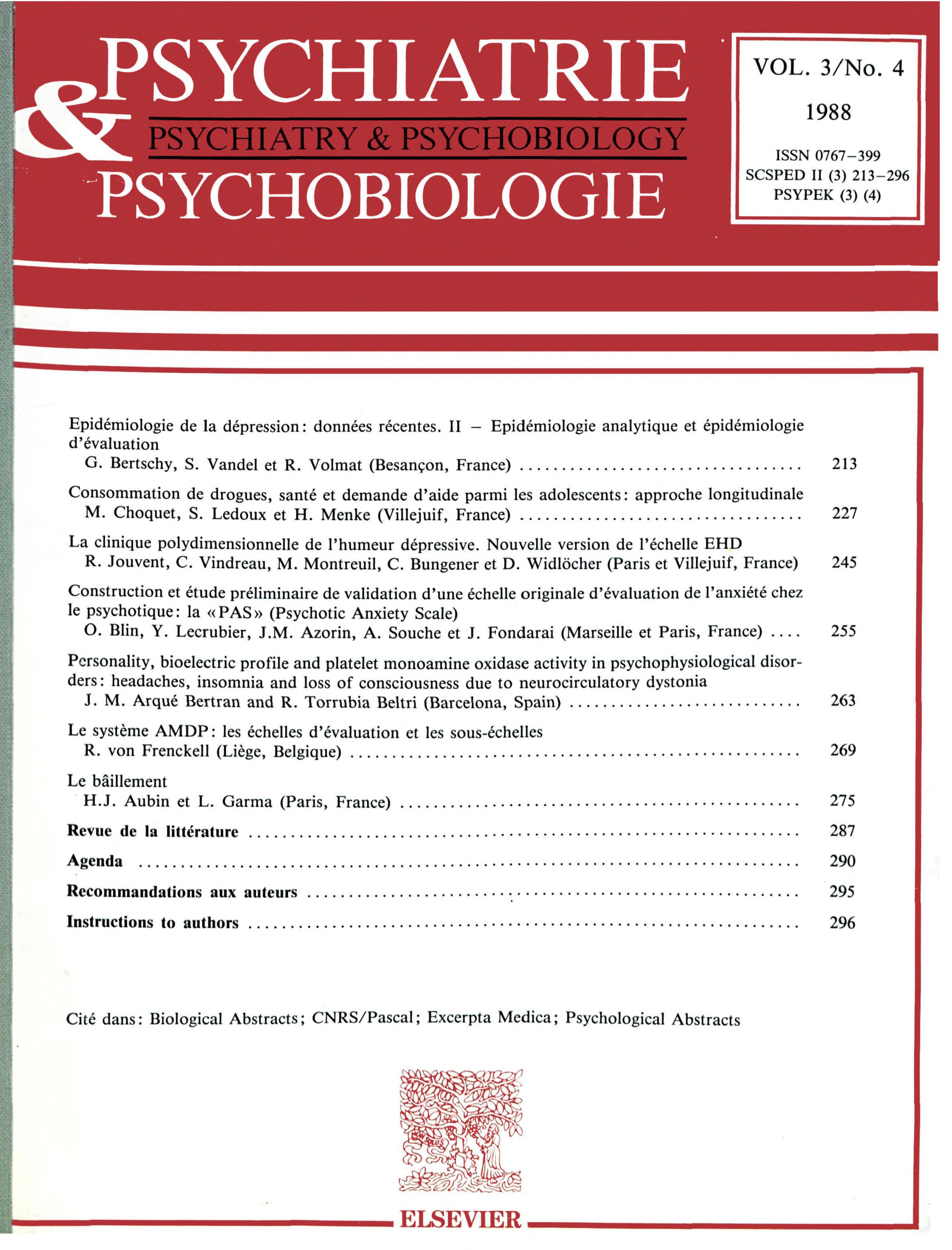No CrossRef data available.
Article contents
¿Son los síntomas afectivos un factor de riesgo para la discinesia tardía en la esquizofrenia?
Published online by Cambridge University Press: 12 May 2020
Resumen
Se ha propuesto repetidas veces que los síntomas afectivos confieren susceptibilidad a la discinesia tardiá (DT). En nuestra muestra de 174 pacientes esquizofrénicos, los antecedentes de síntomas depresivos no se asociaron con la presencia de DT, mientras que los síntomas maníacos se asociaban significativamente con su ausencia. Así, nuestros datos indican que no se puede considerar de modo inequivoco que los síntomas afectivos predispongan a la DT.
- Type
- Comunicación breve
- Information
- Copyright
- Copyright © European Psychiatric Association 2001




